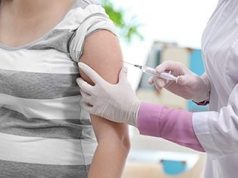Hair cortisol concentrations, but not composite stress, anxiety, and depression scores, predicted birth complications
By Elana Gotkine HealthDay Reporter
WEDNESDAY, Feb. 14, 2024 (HealthDay News) — Elevated cortisol concentrations are associated with the risk for unpredicted birth complications (UBCs), according to a study published in the March issue of Psychoneuroendocrinology.
Jennifer A. Madigan, from Washington State University in Pullman, and colleagues examined the relation between hair cortisol concentration (HCC) in 53 participants and symptoms of psychological distress during the perinatal period and with UBCs. During the third trimester and at two and six months after birth, surveys measuring symptoms of perceived stress, state/trait anxiety, and depression were obtained; 24.5 percent reported UBCs. HCC was measured in hair samples collected during the third trimester and six months after birth in a subset of participants.
The researchers found that participants reporting UBCs had significantly elevated composite stress, anxiety, and depression (SAD) scores two months after birth compared with those reporting normal births; by six months postpartum, the scores decreased. There was a positive association for HCC during the third trimester with reported SAD scores; participants reporting birth complications had elevated HCC. In logistic regression, HCC, but not SAD scores, predicted UBCs. HCC varied during the perinatal period depending on SAD scores at two months postpartum and UBC experience; the association between HCC and SAD scores and influence of UBCs was attenuated when SAD scores at six months postpartum were included in the model.
“Findings from our study suggest that infants whose mothers experienced birth complications may be directly or indirectly exposed to elevated cortisol from the last trimester through the first several months of age,” the authors write.
Abstract/Full Text (subscription or payment may be required)
Copyright © 2024 HealthDay. All rights reserved.








